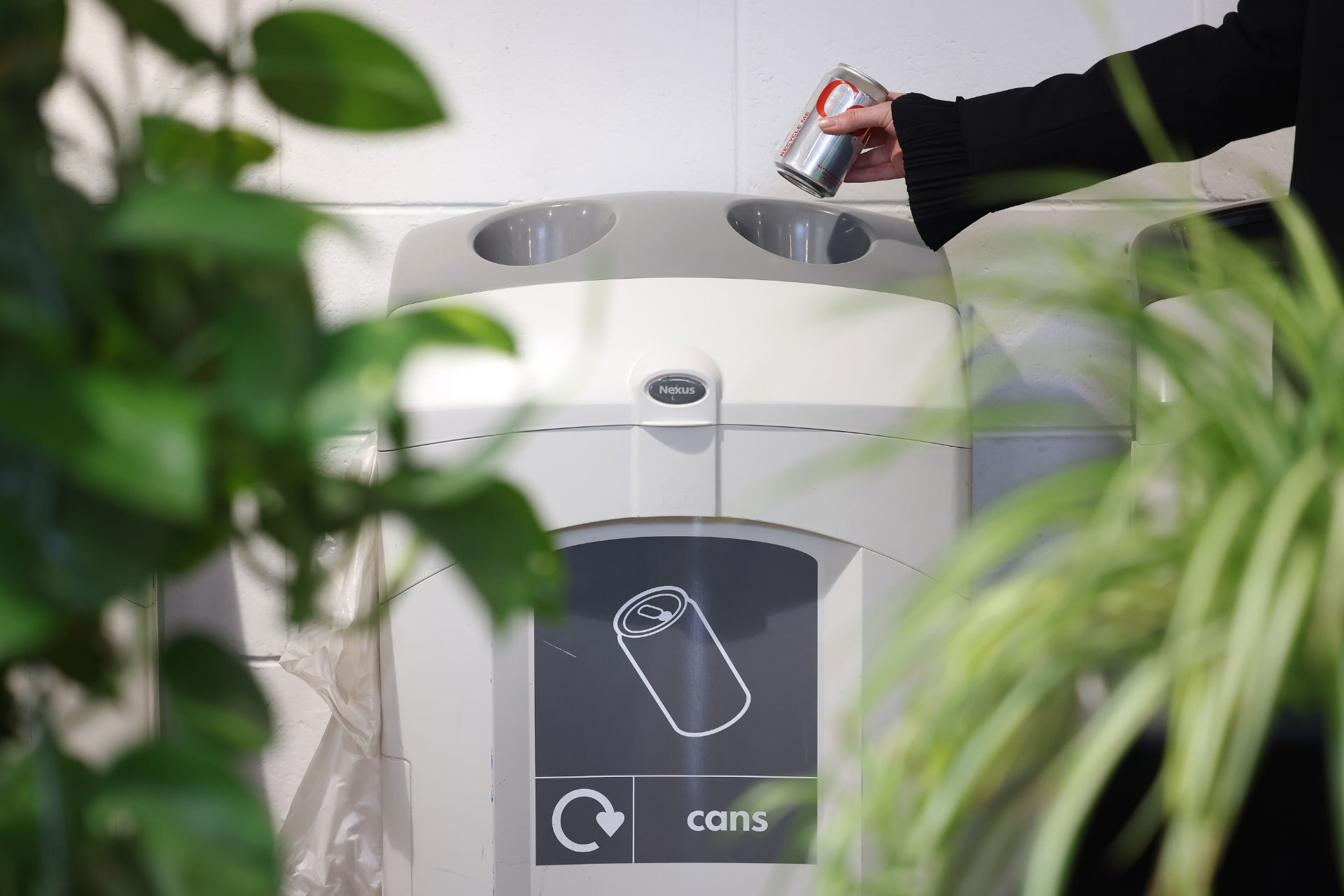
The University has cut domestic general waste by a remarkable 48% compared with the pre-COVID baseline (2009-2019), diverting more than 650 tonnes from incineration with energy recovery.
This progress brings the University within touching distance of its ambitious 50% target, set in 2021, and marks an important milestone in its sustainability journey.
This achievement underpins the Waste Management Plan (2021-25) and supports delivery of the University’s wider Sustainability Strategy. It also reflects the collective efforts of staff, students and partners across the University community.
In 2024/25 alone, 45.8% of domestic waste was recovered: 76.7% recycled, 11.9% treated through anaerobic digestion, and 11.4% composted.
Actions driving change
Development and management of the Waste Management Plan is led by the Environmental Sustainability and Energy Services team, working in partnership with colleagues across PCS, including Cleaning Services and the Mail and Transport team, alongside our waste contractor SUEZ and the wider community of students, staff, and partners, to implement impactful initiatives and achieve this milestone target:
- Green waste recycling – all gardeners’ waste now composted, diverting more than 150 tonnes from incineration.
- Food waste recycling – collections rolled out across accommodation and catering, diverting over 120 tonnes for anaerobic digestion to produce renewable energy and fertiliser.
- Warpit – a new internal reuse platform launched in February 2025, redistributing furniture and equipment and preventing over 14 tonnes of waste alongside a saving of £116,104 by the end of the academic year.
- Increased segregation – separate streams for metal, wood and other materials, reducing residual waste.
- Improved waste infrastructure and signage, promoting clarity and consistency, while matching the waste generated in each area.
Together, these actions have moved waste further up the hierarchy, prioritising prevention, reuse, and recovery over disposal.
Syd Cottle, Director of Estates and Infrastructure said: “Reducing our general waste by almost half is a tremendous achievement and a clear demonstration of the University community’s ability to embed sustainable change into everyday practice. This progress goes beyond meeting targets, it shows how collective action drives meaningful impact, making waste reduction part of how we live and work across our campuses and moving us closer to a circular economy. It also highlights the hard work of the Environmental Sustainability Team and the effectiveness of our Waste Management Plan and our shared determination to lead by example as we continue to deliver on our wider sustainability commitments.”
Next steps
Building on this success, the University has now expanded food waste recycling across all campus buildings, with dedicated bins monitored daily by cleaning teams. Plans are also underway to upgrade external bins, introducing new sections for recyclables and food waste to make recycling easier and further reduce residual waste.
Looking ahead, a new Waste and Resources Management Plan is being developed for launch in 2026. This will set out SMART waste reduction targets underpinned by data driven insights, prioritise improvements in infrastructure and services, strengthen engagement with staff and students to embed sustainable habits across the University community, and driving forward a circular economy through the role out of responsible consumption and circular initiatives across the organisation.
Get involved
Visit the Environmental Sustainability and Energy Services intranet for information, guidance, and support to help us create a more sustainable campus.
For advice on waste reduction and recycling on campus, contact:
- Sam Hay, Waste and Recycling Officer: s.hay@liverpool.ac.uk
- Rhiannon Hunt, Circular Economy Manager: rhiannon.hunt@liverpool.ac.uk
Find out more about our wider sustainability initiatives on the sustainability webpages or by contacting sustainability@liverpool.ac.uk.